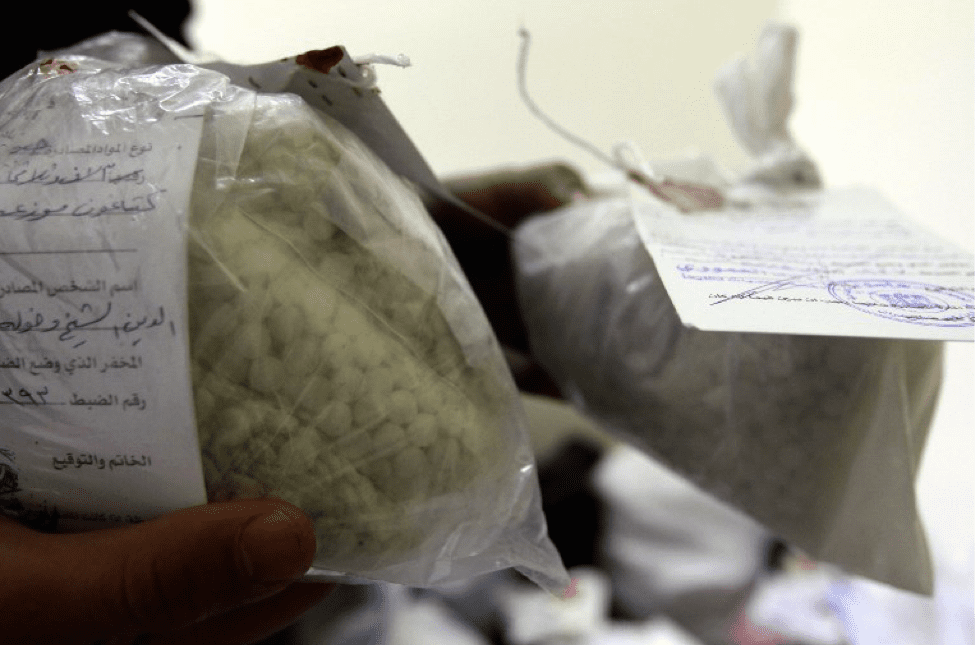Daraa doctor provides treatment for addicts who ‘cannot find a place in society’
Abu Anis runs the only center in Syria’s rebel-held Daraa […]
7 August 2017
Abu Anis runs the only center in Syria’s rebel-held Daraa province that provides treatment to residents struggling with addiction.
The center—located in Al-Taybah Hospital in the southern countryside—opened its doors at the beginning of July. Its purpose, says physician and director Abu Anis, is to provide psychological support for those who have nowhere to turn for help.
“When someone abuses drugs, they cannot find a place in society” Abu Anis tells Syria Direct’s Mohammed al-Haj Ali. “They are ruled out as eligible employees and marriage partners.”
The 58-year-old physician graduated from the University of Damascus in 1983. He specializes in emergency medicine, but has devoted much of his time as a physician to improving psychological support for patients.
The majority of residents who need this support, he says, are fighters injured in battle. These young men are easily able to obtain high-strength painkillers available in the province’s poorly regulated pharmacies and develop dependency on the drugs.

Treating substance abuse among this marginalized portion of the population, says Abu Anis, is just as important as treating a critical injury or chronic illness.
“To say that treating addiction is not necessary would be like saying we should not treat cancer or AIDS,” the physician tells Syria Direct. “Treating addiction is no different because in the end, it leads to death.”
Q: Could you talk to us about stigma surrounding drug addiction in Daraa? Do you find that addiction is perceived as a criminal offense or a health issue?
People see drug abuse as a problem that is criminal, moral and health-related, even economic.
When someone abuses drugs, they cannot find a place in society. They are ruled out as eligible employees and marriage partners. [Addiction] tears apart families and, in turn, destroys a society.
But, at the same time, people certainly see it a concerning health issue health that affects the individuals who make up society.
We [at the center] prioritize the health of the individuals—bodily, mental and moral—before looking at it as a criminal offense.
Q: How widespread is drug use in Daraa? What sorts of drugs are being used by residents?
Aside from a few military factions, drug use is not frequent. But there are no systematic, deliberate programs in place to combat drug use.
There are many different drugs in the Houran region [southwestern Syria] including tramadol [an opioid pain medication], diazepam [the generic name for the tranquilizer Valium] and marijuana. We’ve also come across some heroin use.
Q: Could you talk about your experience treating drug addiction in Daraa? What does the treatment consist of? Are there other similar centers nearby that provide similar treatment?
We use the mhGAP protocol to provide residents with psychological treatment. The protocol is utilized by low-income nations because of the lack of available medications [to treat addiction].
[Ed.: The World Health Organization launched the Mental Health Gap Action Programme (mhGAP) in order to equip non-specialist health care providers in low- and middle-income nations to treat drug addiction, alcohol abuse and a range of psychological disorders.]Al-Taybah Hospital has the only center in Daraa for treating addiction, but we are looking to open other centers in opposition-controlled areas in eastern and western Daraa.
Q: Could you talk about the demographics of the drug addicts you treat? What is a textbook case of addiction you see in Daraa province?
Generally speaking, drug use spreads among young men, in addition to rebel fighters who sustain serious injuries in battle. They move from using basic painkillers to taking stronger, addictive painkillers.
In most cases, I’d say, an addiction develops in this manner, particularly with the ease of obtaining these drugs and the low cost.
Q: Is there any cooperation between the local security forces and the addiction treatment center?
Some patients are brought by security forces in the region [to the center]. Most are opposed to the idea of treatment at first, but after they sense some improvement, they accept it.
The security forces also guard the center, the staff and the patients. There have some cases of patients being aggressive, particularly at the early stages of treatment.
Q: How would you respond to the criticism that the addiction treatment center is taking time and focus away from treating disease and wartime injuries?
It’s wrong. Drugs target the human body, and they are a fundamental problem for any society, wherever it might be. To say that treating addiction is not necessary would be like saying we should not treat cancer or AIDS. Treating addiction is no different because in the end, it leads to death.







